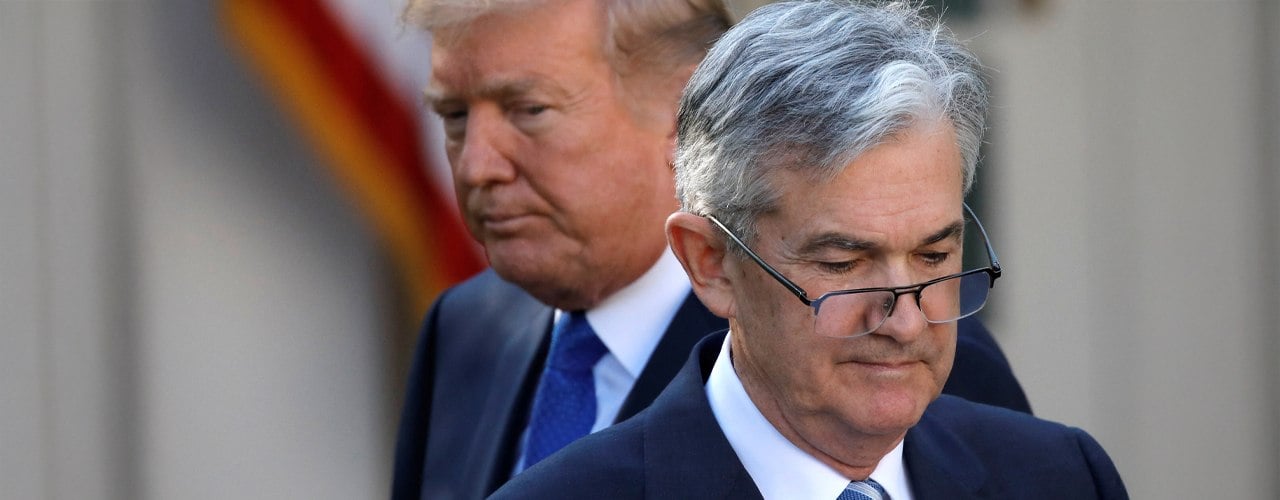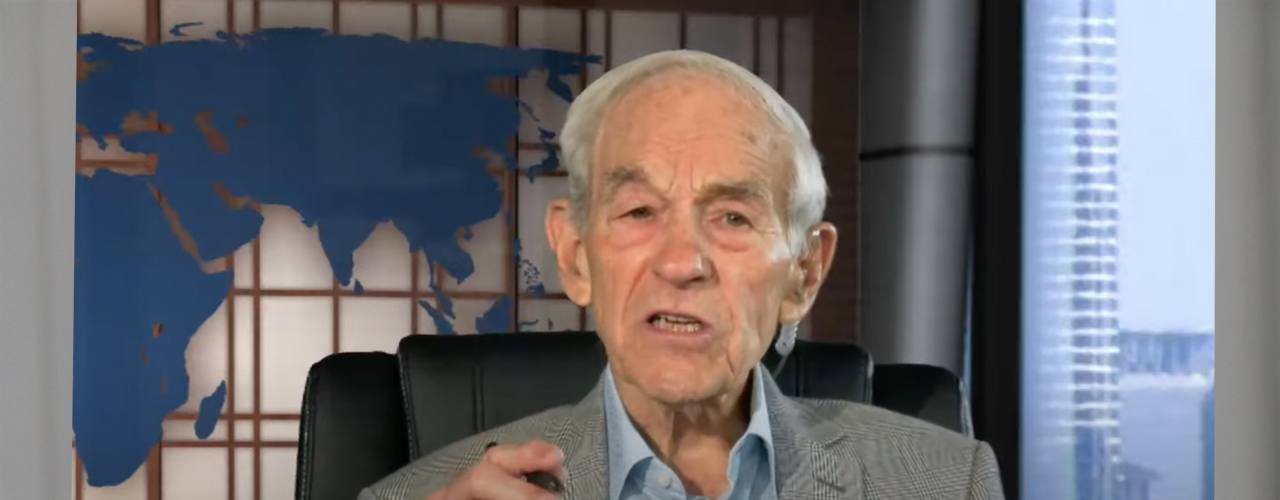In a recent interview, Ron Paul expressed strong reservations about the Federal Reserve’s current role and its potential impact on the U.S. economy, specifically targeting Fed Chair Jerome Powell’s leadership amid political pressures. According to Paul, the Fed’s immense influence over financial policy extends far beyond its intended remit, with decisions that affect everything from market stability to inflation. This level of influence, Paul argues, as he’s done many times in the past, is problematic given the lack of accountability in the Fed’s operations.

Donald Trump and Jerome Powell.
Paul’s critique comes following Powell’s comments on his decision to remain in his position despite pressure from former President Donald Trump. In his statement, Powell clarified that his role is legally protected from direct presidential dismissal, asserting his independence from the executive branch. However, Paul believes that this setup gives the Federal Reserve unchecked power, enabling it to operate as an untouchable financial authority. This power, he contends, creates conditions for policies that may not align with the broader interests of the American public.
“He was pretty unhappy,” Paul said of Powell’s comments. “In truth, he didn’t have the answers. It tells you about the influence that the Fed has on the economy.”
The former congressman continued his analysis by linking the Fed’s decisions to broader economic implications, highlighting how monetary policy decisions can impact everyday Americans. Paul raised concerns over rising national debt and deficit spending, emphasizing the potential for “malinvestment” as the Fed navigates interest rates and inflation control. According to Paul, these choices do not merely steer economic indicators but directly influence citizens’ financial well-being through purchasing power erosion and speculative market impacts.

Dr. Ron Paul.
For Paul, the existence of the Federal Reserve itself is questionable. He cited the U.S. Constitution, arguing that there is no constitutional basis for a central bank with monopoly control over the nation’s currency. This monopoly, in his view, creates an economic dependency that contradicts free-market principles, undermining individual financial freedom. Paul’s critique extended to the legality of the Federal Reserve’s control over the economy, calling it a “counterfeiting mechanism” that injects fiat currency into the system without sufficient oversight.
Paul also touched on the potential for market corrections, or “liquidations,” as necessary adjustments for a healthy economy, especially in light of recent monetary expansion and mounting debt. He cautioned that over-reliance on the Fed’s ability to “print money” risks pushing the economy toward unsustainable growth, potentially leading to inflation and devaluation of the U.S. dollar. He compared this scenario to economic collapses seen in countries facing hyperinflation, asserting that without change, the U.S. economy could face a similar trajectory.
While Paul acknowledged that Powell has attempted some restraint by raising interest rates, he questioned whether these actions are enough. He noted that despite Powell’s attempts to moderate inflation, powerful financial entities continue to push for low rates that enable high-risk investments. Paul suggested that such policies disproportionately benefit large institutions while leaving average Americans vulnerable to market fluctuations and currency devaluation.
免责声明:本文章仅代表作者个人观点,不代表本平台的立场和观点。本文章仅供信息分享,不构成对任何人的任何投资建议。用户与作者之间的任何争议,与本平台无关。如网页中刊载的文章或图片涉及侵权,请提供相关的权利证明和身份证明发送邮件到support@aicoin.com,本平台相关工作人员将会进行核查。




